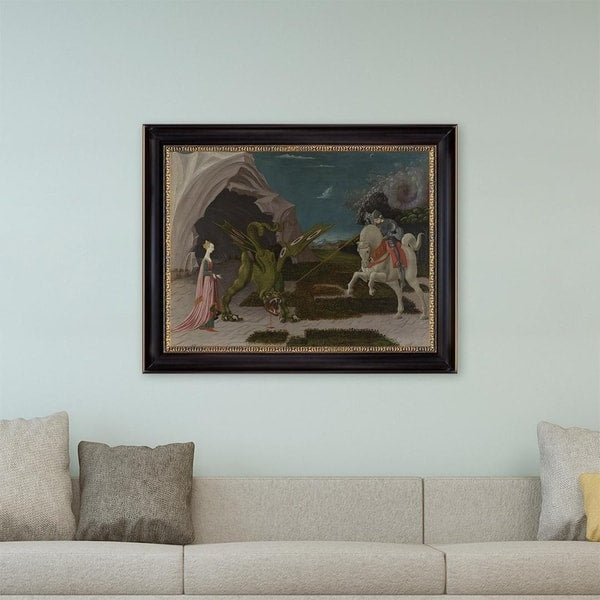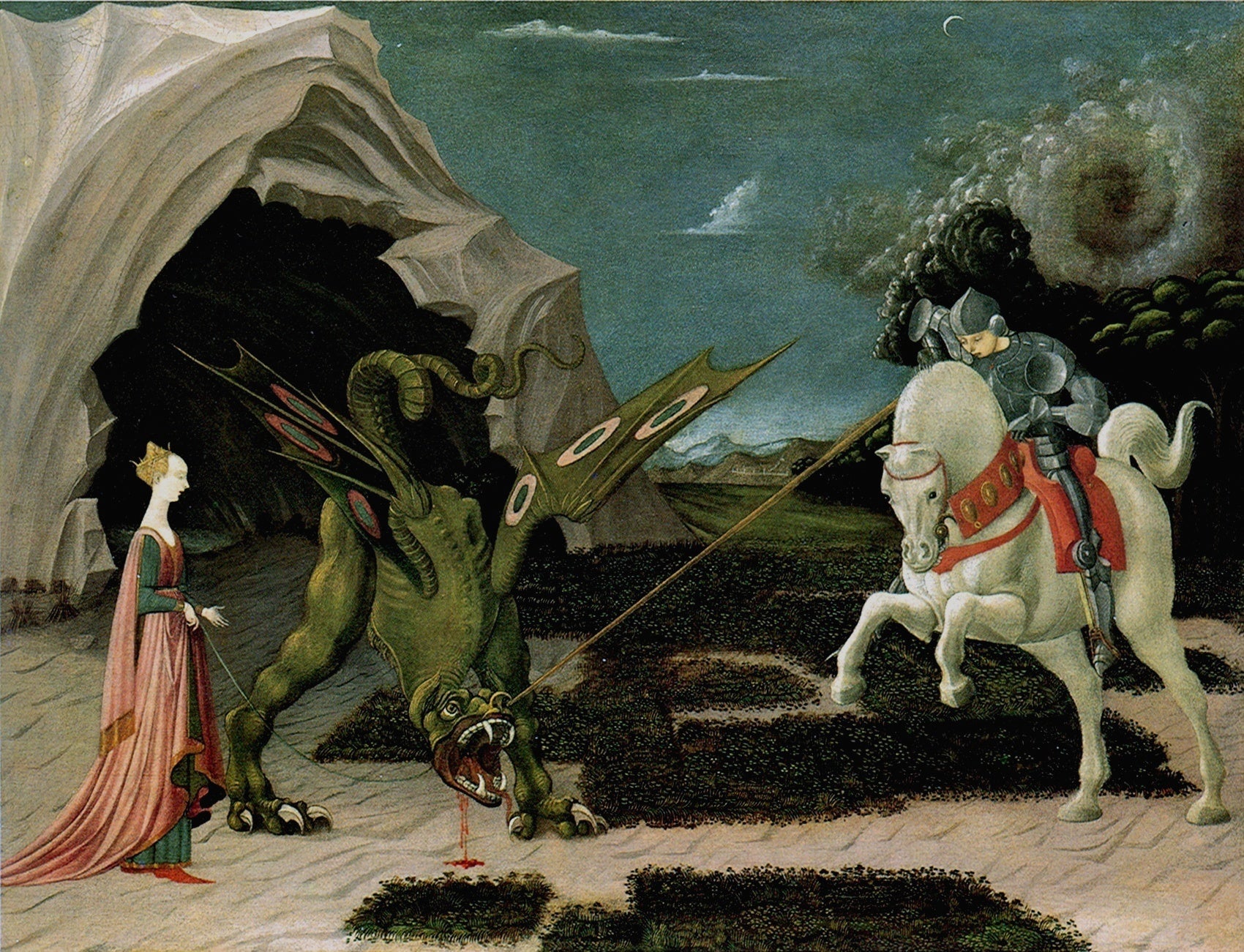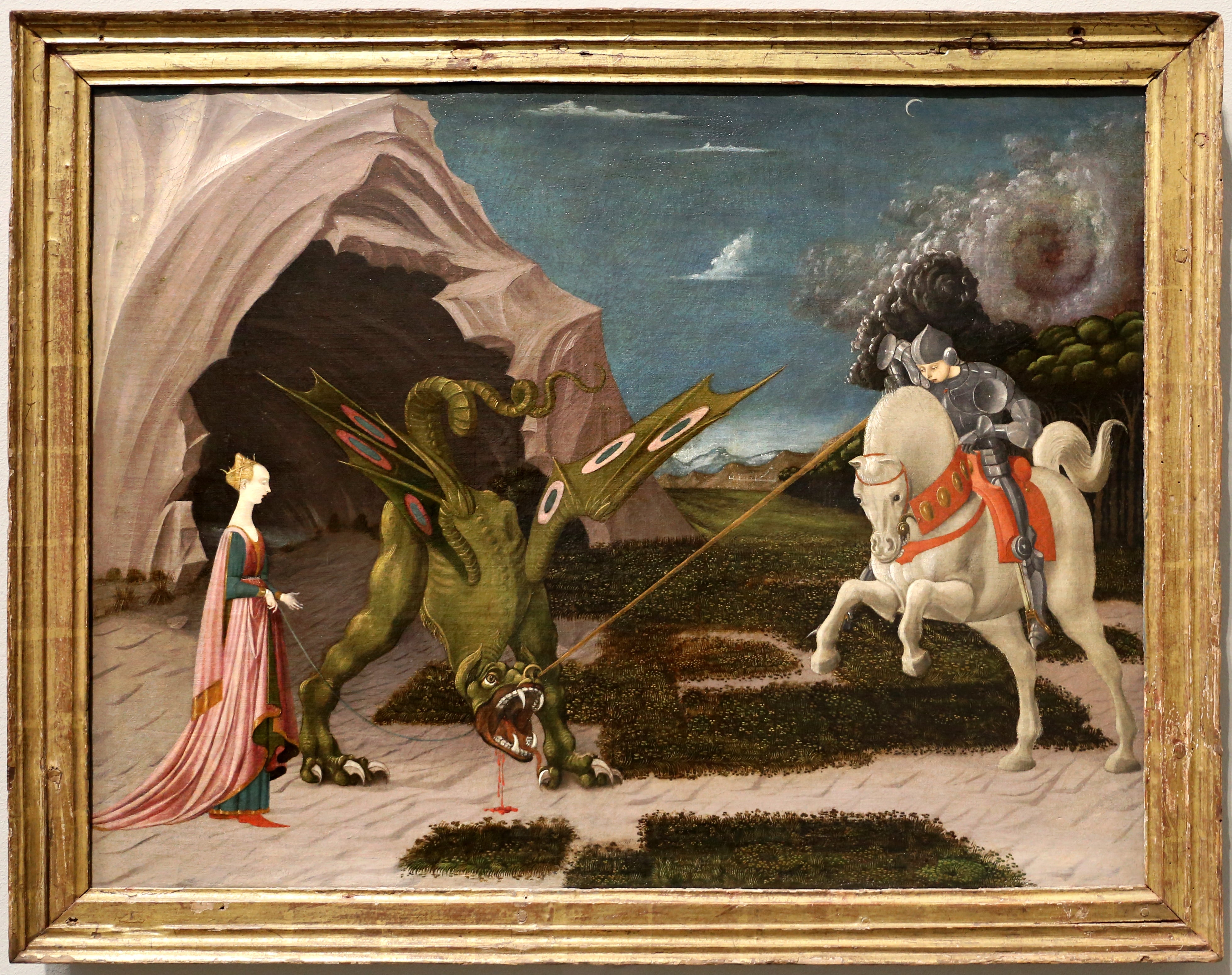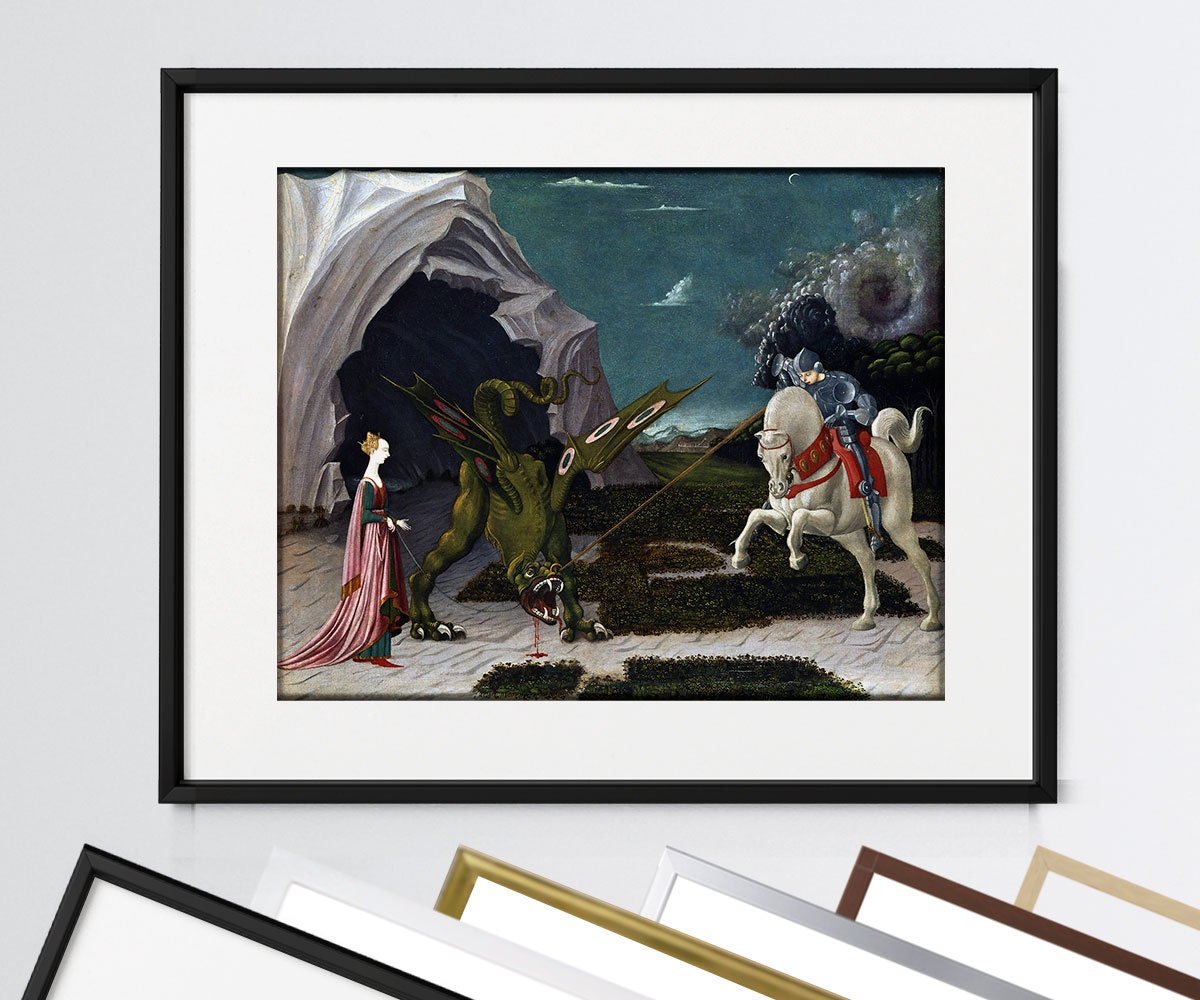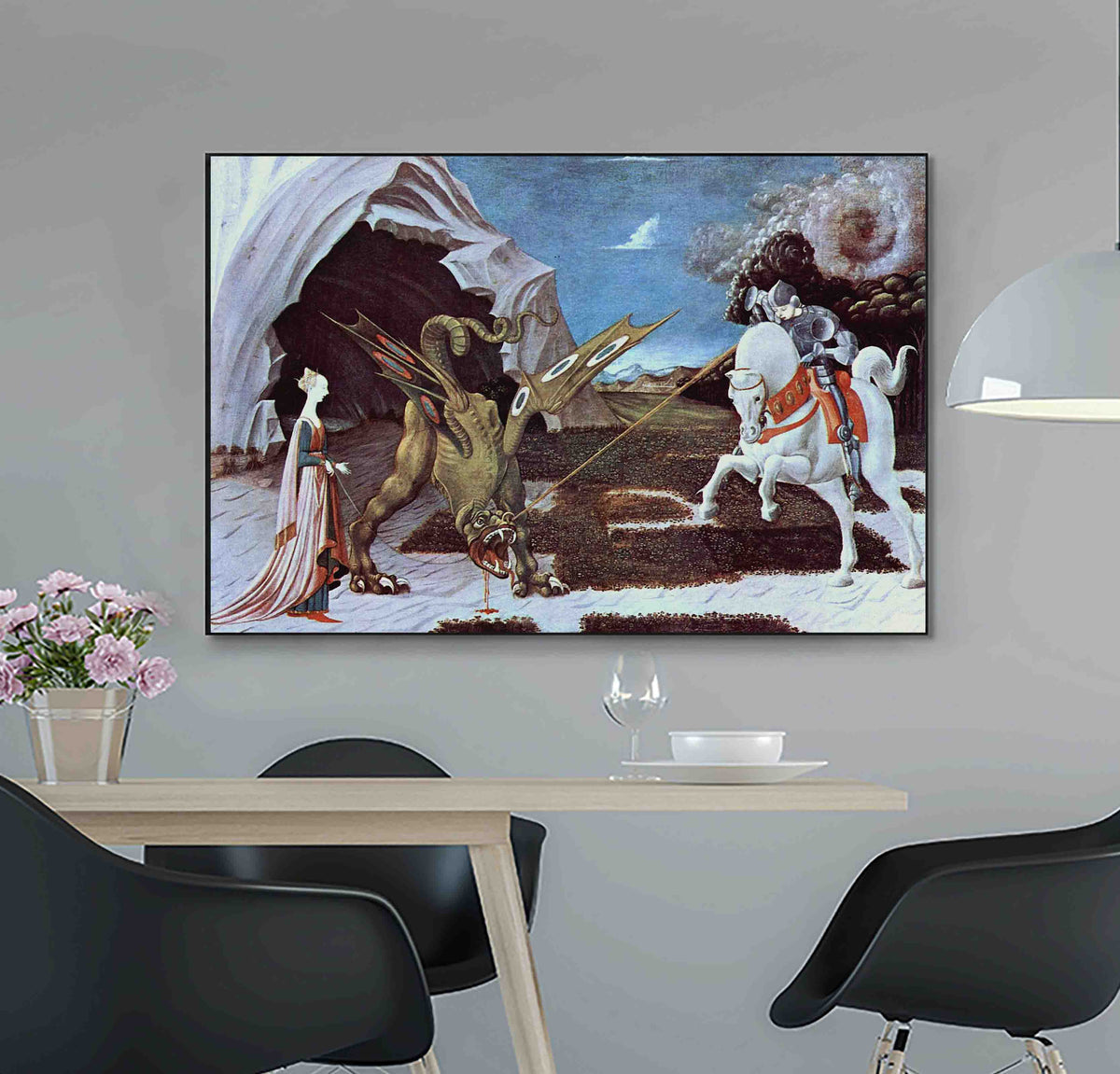Description
San Jorge y el Dragón is an oil painting on panel created by the Italian artist Paolo Uccello in the 1470s. The work represents the medieval legend of Saint George, a Christian knight who kills a dragon to save a princess and her people.
The painting painted between 1439-1440, is stored in the Parisian museum Jacquemart-André. And later, and much more famous, in the National Gallery in London.
One of the most interesting things about this painting is the perspective technique used by Uccello. The artist was known for his obsession with perspective and in this painting he applies it in a very innovative way. He uses diagonal lines to create an effect of depth and perspective that leads the viewer's eye to the background of the image. Additionally, the figure of the dragon extends along the vertical axis of the image, which increases the sense of depth.
Another interesting aspect of the work is the use of color. Uccello uses a bright and saturated palette, with green, red, and gold tones that highlight the figure of Saint George and the dragon. Additionally, the artist uses the chiaroscuro technique to create contrasts of light and shadow that increase the sense of drama and movement in the scene.
It is also interesting to note how the painting reflects the culture and religion of the time. The legend of Saint George was very popular in medieval Europe and was used as a symbol of the fight against evil and the defense of the Christian faith. The image of Saint George as a strong and brave hero, fighting against a monster, was a common representation in the art and literature of the time.
Another interesting detail about Paolo Uccello's painting Saint George and the Dragon is the way the artist represents the armor and clothing of the knight. Saint George's armor is extremely detailed, with a dragon scale pattern engraved on the chest plate and a series of decorative medallions on the top of the helmet. Uccello also accurately represents the different pieces of the armor, including the gauntlets and greaves on the knight's legs.
This level of detail not only shows Uccello's technical skill but also his interest in historical and cultural details. Armor in the medieval era was a fundamental part of the identity and protection of knights, and its precise representation in the painting is a testament to the importance of armor in medieval society.
Additionally, the detail in Saint George's clothing also reflects the fashion and culture of the time. The knight wears a silk tunic decorated with a geometric pattern, which was a popular fashion style in Renaissance Florence. The combination of Saint George's armor and clothing shows how fashion and function were combined in medieval culture.
Overall, the representation of armor and clothing in Saint George and the Dragon adds another layer of interest and complexity to this masterpiece of Renaissance painting.
It remains to be said that Saint George and the Dragon is a masterpiece of Italian Renaissance painting that stands out for its innovative perspective technique, its use of color, and its reflection of the culture and religion of the time. The work remains one of the most iconic images of the legend of Saint George and continues to inspire artists and viewers alike.
Saint George and the Dragon occupies the no. 34 spot on the list of paintings famous

